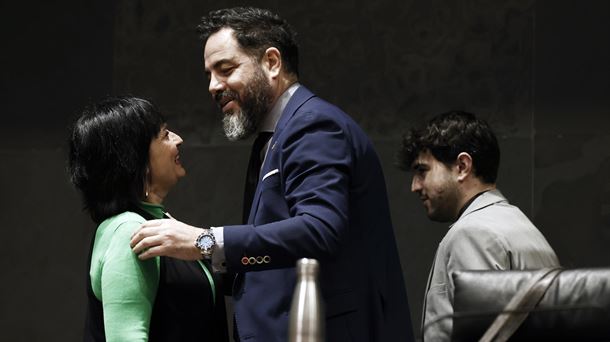In Lower Austria, the new black and blue state government wants to introduce German as a compulsory language during breaks in schools. Principals and teachers vehemently reject these plans. “This is pure populism. You cannot implement that, let alone control it,” criticized Wolfgang Bodai, director of the HTL Hollabrunn and spokesman for the BHS directors. The ÖVP Lower Austria, on the other hand, defended the plans.
In concrete terms, the black-blue working agreement stipulates that German must be promoted during breaks and in the schoolyard “by inclusion in the house rules to be determined autonomously by the school”.
ÖVP NÖ refers to school-autonomous decision
The text of the work program clearly indicates that the break language German is an autonomous decision of the school, emphasizes Jochen Danninger, neo-club chairman of the ÖVP in the state parliament of Lower Austria. Such a measure could be useful in problem schools in urban areas to break parallel societies between pupils. “The focal point here is the education department, which will advise the schools on how to effectively and correctly anchor German as a breaking language in the house rules,” said the club president.
BHS spokesman locates contradiction
However, for Wolfgang Bodai, this requirement of the state government contradicts the fact that the school rules are autonomously drawn up by the school community committee (consisting of students, parents and teachers) together with the school board. He can’t do anything with the specification in terms of content either.
Spokeswoman director: ‘Not feasible’
Contradiction also comes from Isabella Zins, spokeswoman for the AHS directors. “It may be a headline or a headline in a government newspaper, but something that cannot be implemented,” she criticized in the Ö1 “Morgenjournal”. It is not aware of any research that confirms the usefulness of this measure. In addition, “I don’t think this coercion fits with school autonomy, nor with the culture cultivated in our schools,” says the director of the Bundesoberstufenrealgymnasium in Mistelbach.
It would put a strain on the relationship between teachers and students if teachers had to play “language policeman” during the already short breaks, and one should also think about the consequences for Ukrainian students, for example. If the children used different languages in the game, they see this more as a plus and not as a disadvantage.
Call to politicians: expand the range of language support
Top teacher representative Paul Kimberger (FCG) also considers the plan “neither effective nor feasible”: “Teachers are not police officers, they should be responsible for pedagogy.” He also asked what a teacher should do in practice if a student says something in his mother tongue. “Will he get an organ mandate or how do you imagine that?” Instead, Kimberger advocates for more language support offerings. There is a great need for this and mastering German as a language of instruction is ultimately decisive for success at school.
Polaschek does not want to comment on Lower Austria’s plans
Education Minister Martin Polaschek (ÖVP) declined to go into much detail: “What Lower Austria is trying to do is make a recommendation that I don’t have to comment on here,” he said on Tuesday. In any case, he sees no reason to take action at the federal level. It is up to the schools whether and how this is implemented. All in all, he spoke of an “interesting approach”: “You’ll see how it works.”
Similar plans failed in Upper Austria
Years ago in Upper Austria, the black-and-blue government’s plan to legally enshrine German as a language during breaks fell through due to concerns raised by the constitutional service of the Federal Chancellery.
Source: Krone
I am Ida Scott, a journalist and content author with a passion for uncovering the truth. I have been writing professionally for Today Times Live since 2020 and specialize in political news. My career began when I was just 17; I had already developed a knack for research and an eye for detail which made me stand out from my peers.



